A good night’s sleep is the cornerstone of overall health, yet millions struggle with insomnia or poor sleep quality. While many factors influence sleep, emerging research highlights the significant role of diet. By incorporating specific nutrient-rich foods into your daily meals, you can naturally enhance your sleep quality and wake up feeling refreshed.
This comprehensive guide explores the nine best foods that promote better sleep. Whether you suffer from mild sleep disturbances or chronic insomnia, these sleep-boosting foods are backed by scientific studies and trusted health experts. Let’s dive into how each of these foods contributes to restful nights and improved well-being.
How Your Diet Affects Sleep Quality
Before we explore each food in detail, it’s important to understand the connection between nutrition and sleep. Your body’s production of sleep-regulating hormones such as melatonin and serotonin is directly influenced by the nutrients you consume. Foods rich in tryptophan, magnesium, and vitamin B6 can support the production of these hormones, leading to enhanced sleep quality. Additionally, a balanced diet helps regulate blood sugar levels, reducing nighttime awakenings and promoting sustained rest.
For more detailed insights on the connection between nutrition and sleep, check out Healthline’s guide on foods that help you sleep and Mayo Clinic’s sleep health resources.
Best Foods to Help You Sleep
Dairy Products: A Natural Source of Sleep-Promoting Nutrients
Dairy products such as milk, yogurt, and cheese are more than just sources of calcium—they are rich in tryptophan, an amino acid that helps produce serotonin and melatonin, key hormones for regulating sleep. A warm glass of milk before bed is a time-tested remedy for insomnia, offering both comfort and a natural sleep aid.
Key Benefits:
- Tryptophan Content: The high levels of tryptophan in dairy help boost melatonin production, promoting relaxation.
- Calcium-Rich: Calcium assists the brain in using tryptophan to manufacture melatonin.
- Protein for Satiety: A small serving of yogurt or cheese can prevent nighttime hunger, contributing to uninterrupted sleep.
For additional information on the benefits of dairy for sleep, visit WebMD’s nutrition guide.
Almonds: The Crunchy Sleep Enhancer
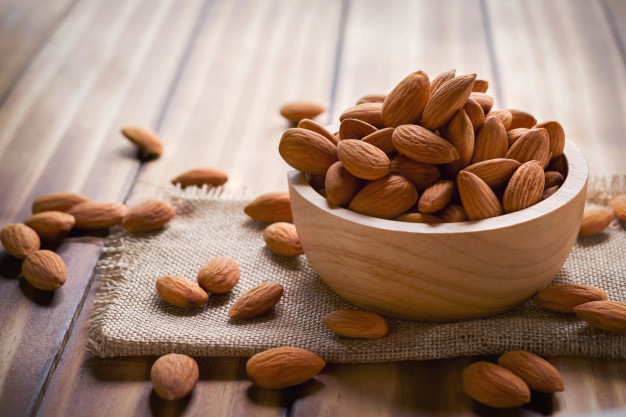
Almonds are not only a popular snack but also a powerhouse of nutrients essential for sleep. Packed with magnesium, a mineral known to improve sleep quality, almonds can help regulate your body’s stress response and relax your muscles before bed.
Key Benefits:
- High Magnesium Levels: Magnesium helps lower cortisol levels and supports muscle relaxation.
- Healthy Fats: Almonds contain monounsaturated fats that support heart health and overall wellness.
- Antioxidant Properties: The antioxidants in almonds reduce inflammation, contributing to a calmer mind.
Incorporate a small handful of almonds into your evening snack to benefit from their sleep-enhancing properties. Learn more about the role of magnesium in sleep from Healthline’s magnesium guide.
Bananas: Nature’s Sleep Aid
Bananas are a versatile fruit loaded with potassium and magnesium, two minerals that play a critical role in muscle relaxation and stress reduction. Their natural sweetness also helps satisfy sugar cravings without causing a spike in blood sugar levels.
Key Benefits:
- Potassium and Magnesium: These minerals help relax muscles and improve sleep quality.
- Vitamin B6: Bananas are rich in vitamin B6, which aids in the production of melatonin.
- Natural Energy Regulation: The fiber and natural sugars in bananas help maintain balanced blood sugar levels during sleep.
Adding a banana to your pre-bedtime routine can help stabilize your energy levels and prepare your body for restful sleep. For further reading, see Mayo Clinic’s nutritional advice.
Walnuts: The Brain-Boosting Sleep Snack
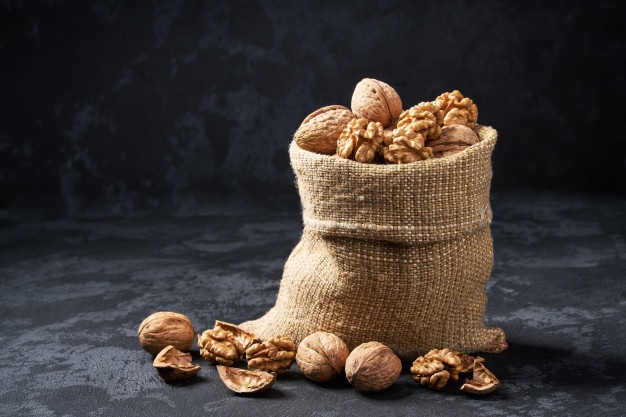
Walnuts are another excellent source of sleep-inducing nutrients, including melatonin, omega-3 fatty acids, and antioxidants. Consuming a small portion of walnuts in the evening may help improve your sleep patterns and even enhance cognitive function.
Key Benefits:
- Melatonin-Rich: Walnuts naturally contain melatonin, the hormone responsible for regulating sleep-wake cycles.
- Omega-3 Fatty Acids: These healthy fats are known to reduce inflammation and support brain health.
- Antioxidants: The antioxidants in walnuts can help reduce oxidative stress, leading to better overall sleep.
Integrating walnuts into your diet as a light snack before bed may assist in achieving deeper, more restorative sleep. For more scientific insights, check out this study on walnuts and sleep quality.
Cherries: The Sweet Sleep Enhancer
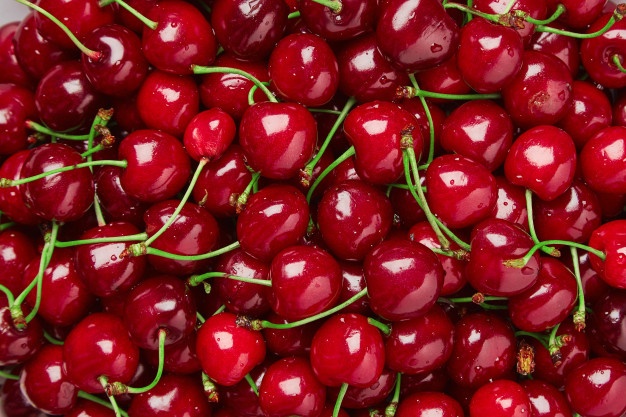
Cherries, particularly tart cherries, have been found to naturally boost melatonin levels, making them an ideal bedtime snack for those struggling with insomnia. Consuming cherries or tart cherry juice can significantly improve sleep duration and quality.
Key Benefits:
- Natural Melatonin: Cherries are one of the few natural food sources of melatonin.
- Antioxidant Powerhouse: The high antioxidant content helps reduce inflammation and oxidative stress.
- Low Calorie: Cherries offer a sweet taste without excessive calories, making them an ideal choice for a healthy diet.
For those looking to incorporate cherries into their nightly routine, a small serving of fresh cherries or a glass of tart cherry juice can be particularly beneficial. Learn more from Healthline’s article on tart cherry benefits.
Chamomile Tea: The Soothing Herbal Sleep Remedy
Chamomile tea has been celebrated for centuries as a natural remedy for insomnia and anxiety. This herbal infusion contains apigenin, an antioxidant that binds to receptors in the brain, promoting relaxation and sleep.
Key Benefits:
- Natural Sedative: Chamomile tea’s calming properties help reduce anxiety and promote a sense of calm.
- Digestive Aid: It also aids in digestion, ensuring that your body is relaxed and ready for sleep.
- Anti-inflammatory Properties: The antioxidants in chamomile can help lower inflammation and reduce stress.
Brewing a cup of chamomile tea before bedtime is a simple yet effective way to wind down and prepare your body for a restorative sleep. For additional insights on herbal sleep remedies, visit Mayo Clinic’s herbal supplement guide.
Pumpkin Seeds: The Tiny Sleep Powerhouse
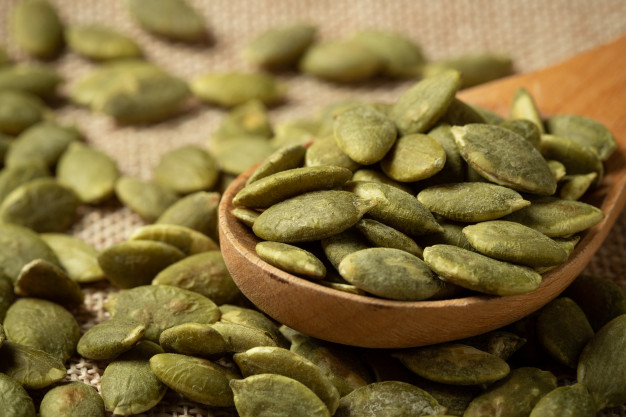
Pumpkin seeds are small but mighty when it comes to promoting better sleep. They are rich in tryptophan, magnesium, and zinc—nutrients that all play a role in regulating sleep patterns and supporting immune function.
Key Benefits:
- Tryptophan and Magnesium: These compounds help boost the production of melatonin and support muscle relaxation.
- Zinc Content: Zinc plays an essential role in the metabolism of sleep-regulating hormones.
- Nutrient Dense: Pumpkin seeds are also packed with antioxidants, which help reduce oxidative stress and support overall health.
A small serving of pumpkin seeds as a snack or sprinkled over a salad can contribute to better sleep quality. For more on the benefits of pumpkin seeds, see Healthline’s comprehensive guide.
White Rice: The Sleep-Supportive Carb Choice
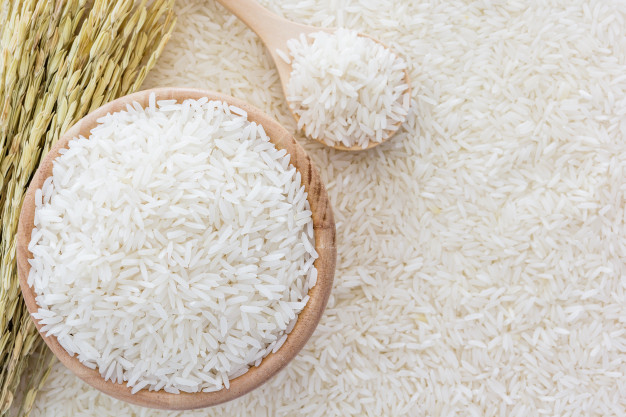
White rice, often underestimated in its nutritional value, can be a sleep-friendly carbohydrate source when eaten in moderation. Its high glycemic index (GI) helps increase the production of tryptophan and serotonin, paving the way for better sleep.
Key Benefits:
- High Glycemic Index: White rice increases insulin production, which in turn makes more tryptophan available for melatonin synthesis.
- Easily Digestible: It is gentle on the stomach, making it a suitable option for a light dinner.
- Energy Regulation: Consuming a moderate amount of white rice can help stabilize blood sugar levels, reducing nighttime awakenings.
Incorporating a moderate portion of white rice into your evening meal may support your body’s natural sleep mechanisms. For more information on how carbohydrates affect sleep, visit WebMD’s nutrition insights.
Oily Fish: The Omega-3 Rich Sleep Booster
Oily fish, including salmon, mackerel, and sardines, are renowned for their high content of omega-3 fatty acids and vitamin D—both of which are crucial for regulating sleep. These nutrients support the production of serotonin, which is later converted into melatonin, the sleep hormone.
Key Benefits:
- Omega-3 Fatty Acids: These healthy fats reduce inflammation and improve brain function, which are vital for quality sleep.
- Vitamin D: Adequate vitamin D levels are linked to better sleep quality and mood regulation.
- High-Protein: Protein from oily fish can also help stabilize blood sugar levels throughout the night.
Including oily fish in your diet a few times a week can not only promote heart health but also enhance your sleep quality. For further reading, check out Mayo Clinic’s recommendations on omega-3 fatty acids and Healthline’s guide on vitamin D and sleep.
Integrating Sleep-Boosting Foods Into Your Daily Routine
Adopting a sleep-supportive diet is more than just a temporary fix; it’s a sustainable lifestyle change that can lead to long-term improvements in your overall health. Here are some practical tips on how to incorporate these nine sleep-boosting foods into your daily routine:
- Plan Balanced Meals: Ensure that your dinner plate includes a balance of protein, healthy fats, and carbohydrates. Incorporate foods like white rice and oily fish for dinner, complemented by a side of steamed vegetables.
- Evening Snacks: If you feel hungry before bed, opt for light, nutrient-dense snacks such as a small bowl of yogurt, a handful of almonds, or a few pumpkin seeds.
- Hydration and Herbal Teas: Replace sugary drinks with a warm cup of chamomile tea to help relax your body and mind.
- Consistent Eating Schedule: Maintaining a regular eating schedule can help regulate your body’s internal clock, promoting a more consistent sleep cycle.
For more lifestyle tips on balancing diet and sleep, explore trusted sources like Verywell Health and Healthline’s wellness section.
The Long-Term Benefits of a Sleep-Optimized Diet
Improving your sleep through dietary changes not only enhances the quality of your nightly rest but also has profound long-term benefits. Better sleep can lead to improved cognitive function, a stronger immune system, and a lower risk of chronic conditions such as obesity, diabetes, and cardiovascular disease. By focusing on sleep-boosting foods, you’re investing in your overall health and setting the stage for a more energetic and productive life.
Adopting these nutritional strategies can help reduce the need for sleep medications and lower the stress levels associated with insomnia. As your sleep improves, you may also notice better mood regulation, increased focus, and a more robust metabolism—all of which contribute to a healthier, more balanced lifestyle.
For further scientific insights on the impact of diet on sleep, refer to this comprehensive review on sleep and nutrition available through the National Institutes of Health.
Final Thoughts: Embrace a Healthier Sleep with Smart Dietary Choices
The journey to better sleep starts with smart dietary choices. Incorporating dairy products, almonds, bananas, walnuts, cherries, chamomile tea, pumpkin seeds, white rice, and oily fish into your daily routine can create a powerful synergy that enhances your sleep quality naturally. These foods not only support the production of essential sleep hormones but also contribute to overall well-being, reducing stress and inflammation.
By embracing these nine sleep-boosting foods, you’re not merely addressing sleep issues; you’re adopting a holistic approach to health that can lead to improved energy levels, better mood regulation, and long-term disease prevention. Remember, consistency is key. Gradually integrate these foods into your routine, experiment with recipes, and observe how your sleep quality improves over time.
Start tonight by planning a sleep-friendly meal and consider a pre-bedtime snack that includes one of these nutrient-dense options. Over time, the cumulative benefits will pave the way for more restful nights and brighter, more energized days.
For additional sleep and nutrition tips, explore reliable resources such as Sleep Foundation and Harvard Health Publishing.
Preview photo credit pixabay, flickr
Based on materials from Readerʼs Digest, symptomfind, goodhousekeeping









